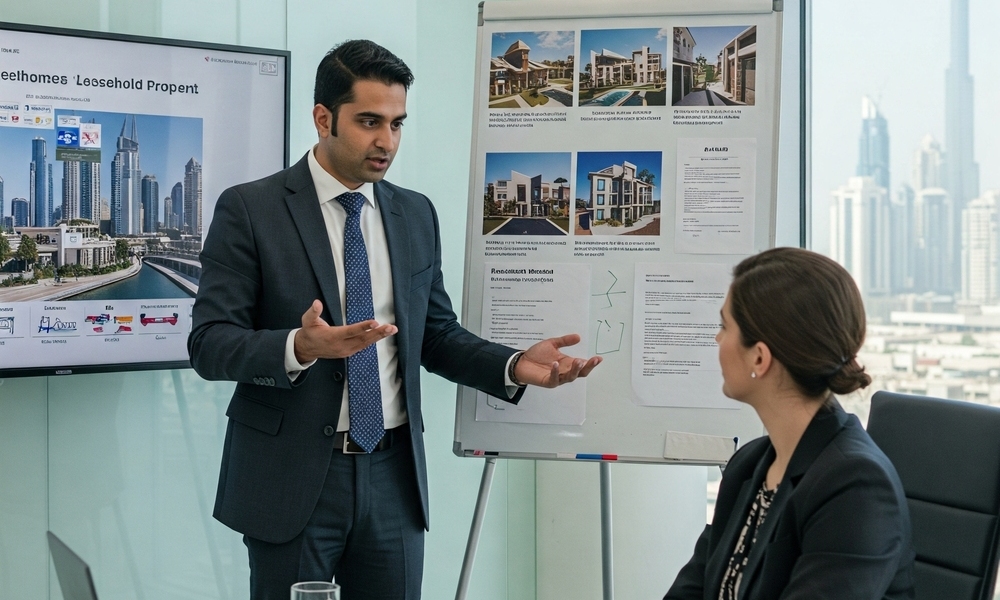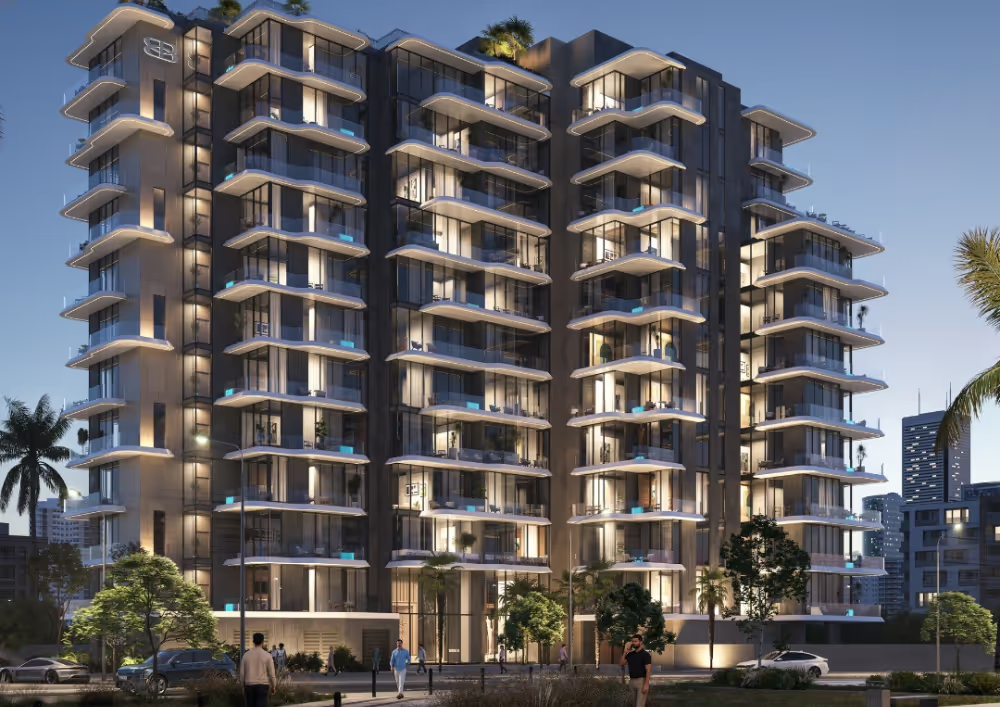Freehold vs Leasehold Dubai: What Property Buyers Need to Know

Buying property in Dubai is more accessible than ever — but before you sign, you’ll come across two terms that carry huge implications for your rights as a property owner:
- Freehold
- Leasehold
Whether you’re an expat investing long-term or a resident buying a family home, understanding the difference between freehold and leasehold—and specifically, understanding freehold—will help you make a smarter, legally sound decision.
Introduction to Property Ownership in Dubai
Property ownership in Dubai represents a substantial opportunity for both residents and international investors, thanks to the city’s dynamic real estate market and robust legal framework. The Dubai government has established clear property ownership laws to protect buyers and maintain market stability, making it essential for anyone considering buying property to understand the difference between freehold and leasehold property ownership. Freehold property offers buyers complete ownership rights over both the property and the land, while leasehold property grants the right to use the property for a set period, typically under specific conditions. Both freehold and leasehold properties come with their own set of benefits and limitations, so it’s crucial for property owners to evaluate their long-term goals, investment strategies, and personal circumstances before making a decision. Whether you’re looking for full ownership or a more flexible arrangement, understanding these options will help you navigate Dubai’s property ownership landscape with confidence.
What is Freehold Property?

In a freehold property, the buyer owns:
- The property
- The land it stands on
- Full ownership rights for life (and can pass it on as inheritance)
Freehold property provides absolute ownership and comprehensive ownership of both the property and the land.
A freehold buyer's details, including the freehold buyer's name, are registered on the title deed by the Dubai Land Department, granting full legal rights.
The freehold owner or freehold property owner is responsible for maintenance and can freely sell, lease, or rent properties.
Freehold apartment options are available in Dubai, and buyers can buy freehold property or buy freehold properties in various designated freehold areas or a freehold area such as Jumeirah Village Circle.
The freehold decree of 2002 allows foreign nationals living abroad to purchase freehold properties in Dubai, including residential properties, and such properties offer long-term investment and inheritance benefits.
This is the most complete form of ownership, and it’s what most international investors and end-users prefer when they buy property in Dubai
Key Benefits of Freehold Ownership:
- You can sell, lease, or live in the property with no limitations
- Property can be passed to heirs
- Ownership is registered in your name at Dubai Land Department (DLD)
- You can modify or renovate (with approvals)
- Ideal for long term investment due to security of ownership and potential for capital appreciation
Examples of freehold zones: Arjan, Downtown Dubai, Business Bay, JVC, Dubai Marina
What is Leasehold Property?
In a leasehold arrangement, leasehold property means you’re acquiring the right to occupy and use the property unit for a fixed period—usually 30 to 99 years—but not the land it is built on.
The legal owner (freeholder) retains ownership of the land, while leasehold owners have rights to occupy and use the property unit for the duration of the lease. Leasehold arrangements often come with limited liability for maintenance and repairs compared to freehold. In Dubai, buyers can choose between leasehold or freehold property depending on their investment goals and desired level of control.
You do not own the land, and your rights are governed by the lease agreement.
Limitations of Leasehold:
- You can’t make structural changes without consent
- Lease terms must be renewed after expiry, requiring a lease renewal process
- Developer/landowner may set conditions on resale or subletting
- Resale value may decline as lease term shortens
Examples of leasehold zones: Green Community, Discovery Gardens, Dubai Silicon Oasis (some projects)
Leasehold Zones and Restrictions
Leasehold zones in Dubai are designated areas where property ownership is granted for a fixed lease period, often up to 99 years, rather than on a freehold basis. In these zones, leasehold property owners must adhere to specific restrictions set by the property owner or master developer. For example, making structural changes or significant renovations to leasehold properties typically requires written approval from the property owner. There may also be limitations on subletting, transferring, or assigning the lease to another party, which can affect your flexibility as a property owner. Leasehold properties in Dubai are less common than freehold areas, but they can be an attractive option for buyers seeking lower entry prices or those planning a shorter stay. Before purchasing a leasehold property in Dubai, it’s essential to thoroughly review the lease agreement to understand your rights, obligations, and any restrictions that may apply.
Extending Lease Period
If you own a leasehold property in Dubai and wish to extend your lease period, the process generally involves negotiating directly with the property owner or landlord. The possibility of extending the lease depends on the original lease agreement and the willingness of the property owner to renew or extend the terms. Typically, this process includes drafting a new lease agreement, which may come with updated terms, conditions, and potentially additional fees. It’s important for leasehold property owners to carefully review any new agreement to ensure they fully understand the implications of the extension, including any changes to rent, maintenance responsibilities, or other obligations. Seeking guidance from a real estate professional or legal advisor can help ensure a smooth and transparent lease extension process, protecting your interests as a leasehold property owner in Dubai.
Freehold vs Leasehold: Key Differences Table
This table highlights the main differences between freehold and leasehold ownership in Dubai.
Property Maintenance and Costs
When buying property in Dubai, understanding maintenance responsibilities and associated costs is crucial for both freehold and leasehold property owners. Freehold property owners are generally responsible for all aspects of property maintenance, including repairs to the building’s structure, upkeep of common areas, and payment of service charges and utility bills. This comprehensive responsibility gives freehold owners greater control but also means they must budget for ongoing maintenance costs. In contrast, leasehold property owners may only be responsible for minor repairs and day-to-day upkeep, while the property owner or landlord typically handles major repairs and structural maintenance. However, leasehold property owners should still account for service charges, maintenance fees, and any costs outlined in their lease agreement. Factoring in these expenses is essential for making an informed decision and ensuring the long-term affordability of your property investment in Dubai.
Inheritance and Visa Eligibility
Inheritance and visa eligibility are key factors to consider when choosing between freehold and leasehold property in Dubai. Freehold property ownership allows owners to pass their property on to heirs, providing long-term security and peace of mind for families. Additionally, owning a freehold property in Dubai can make buyers eligible for renewable UAE residence visas, which is a significant advantage for foreign nationals seeking to live or invest in the city. Leasehold property owners, however, may face restrictions on inheritance, as the right to the property is limited to the lease period and may not automatically transfer to heirs. Furthermore, leasehold property ownership does not always grant eligibility for UAE residence visas, or may come with additional conditions. It’s important for buyers to review the terms of property ownership carefully and consult with legal experts to fully understand the implications for inheritance and visa status before making a substantial financial commitment in Dubai’s real estate market.
Which Should You Choose?
Choose Freehold If You:
- Want full control and long-term ownership
- Are buying as an investment or family residence
- Prefer high resale and rental potential
- Plan to buy property in Dubai to apply for UAE residency or Golden Visa
Choose Leasehold If You:
- Want a lower entry price
- Plan to stay short-term
- Are okay with developer restrictions
- Don't need to pass property to heirs
Pearlshire Offers 100% Freehold Projects in Prime Zones
At Pearlshire, all our developments — including Bond Enclave in Arjan — are freehold, giving buyers:
- Total legal ownership
- Full capital control
- Access to residency pathways (Golden Visa eligibility)
Whether you're a first-time buyer or seasoned investor, buying freehold property in Dubai ensures peace of mind and lasting value.
Discover what makes Pearlshire stand out 👉 Explore Freehold Projects
FAQs
1. What is the difference between freehold and leasehold property in Dubai?
Freehold gives you full ownership of the property and land, while leasehold means you lease the property for 30–99 years but don’t own the land.
2. Can foreigners buy freehold property in Dubai?
Yes, foreign nationals can buy freehold properties in designated zones in Dubai with 100% ownership rights.
3. Are freehold properties better than leasehold in Dubai?
Freehold offers more control, resale value, and inheritance rights. Leasehold is cheaper upfront but comes with restrictions and limited tenure.
4. What are the main benefits of owning a freehold property in Dubai?
You get full ownership, can modify the property (with approvals), pass it on to heirs, and qualify for long-term residency visas.
5. Is leasehold property worth buying in Dubai?
Leasehold can be suitable for short-term investors or expats looking for lower entry costs, though it has limited ownership flexibility.
6. Can you convert a leasehold property to freehold in Dubai?
Currently, this is not common. Conversion would depend on future government regulations and specific project rules.
7. What is the duration of a leasehold property in Dubai?
Typically, leasehold rights range between 30 to 99 years, after which renewal is subject to negotiation with the landowner.
8. Do leasehold owners pay service charges in Dubai?
Yes, leasehold owners still pay service charges and other maintenance costs as per the lease agreement.
9. Which areas in Dubai offer freehold properties?
Popular freehold zones include Arjan, JVC, Dubai Marina, Downtown Dubai, Business Bay, and Dubai Hills.
10. Does owning a freehold property in Dubai qualify you for a residence visa?
Yes, properties over AED 750K can qualify the owner for a 2-year renewable visa, and AED 2M+ for a 10-year Golden Visa.






